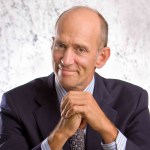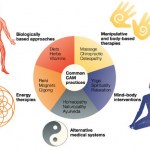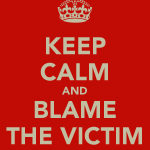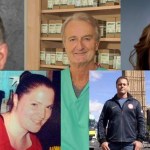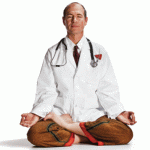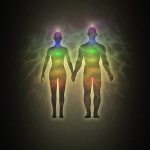alternative medicine
As you probably noticed, I didn't manage a post yesterday. Nor did I manage one today, other than this. That's because I was busy preparing for QEDCon, where I will be on a panel and giving a talk, and, of course, putting together my talk. As I write this, I'm horrendously jet lagged; so I probably couldn't write much that's coherent anyway. Consequently, there likely won't be any new posts until next week.
I will take a moment, however, to mention that there will be significant changes to this blog in the near future. It's a process that will likely take a couple of weeks, and I'll update…
Alternative medicine, by definition, consists of medicine that either has not been shown to work or has been shown not to work. To paraphrase an old adage yet again, medicine that has been shown to work with an acceptable risk-benefit ceases to be "alternative" and becomes simply "medicine."
Unlike the case for many conditions commonly treated with alternative medicine, whether or not a treatment works against cancer is determined by its impact on the hardest of "hard" endpoints: Survival. A patient either survives his cancer or he does not. Even the "softer" endpoints used to assess the…
By the time you read this, I will have arrived at an undisclosed location somewhere in Europe. My 25th wedding anniversary is today, and to celebrate my wife and I planned a nearly two-week vacation flitting about Europe. I won't announce where exactly, given that I've irritated a couple of European cranks in recent months, but those of you who are Facebook friends or who follow me on Twitter will likely soon see mentions and/or photos of where we're vacationing.
As this day approached, I contemplated what to do with the blog. I thought about just shutting it down for two weeks, but hesitated…
[Editor's note: Sorry this is a few hours late. I forgot to change the status from DRAFT to SCHEDULE in WordPress last night. D'oh!]
The single most persuasive strategies by which quacks sell their wares and believers in quackery persuade others to try the quackery they believe in is the personal anecdote. Indeed, I established very early on in the history of this blog a type of post that has become a staple that shows up several times a year. In these posts, I deconstruct "alternative cancer cure" testimonials, showing how the story as related doesn't provide convincing evidence that the…
I must admit that the last couple of weeks have been rather grim here on the old blog. Betweemn Donald Trump's White House spewing , an unfortunate patient embracing quackery, pseudoscience at the VA, and more. So it is that I feel as though it might not be a bad idea to step back for a day, to look into an acupuncture "study" that's been making the rounds in the media. Oddly enough, I remember it showing up a week ago and meant to discuss it then. So I'm glad that I saw a new news story on it in —where else?—The Daily Mail in the form of an article entitled Forget Viagra - acupuncture could…
Longtime readers of this blog are familiar with one major kind of blog post that I've done periodically ever since the very beginning of this blog, and that's the alternative medicine cancer cure testimonial, particularly breast cancer cure testimonials, but also testimonials for a wide variety of cancers allegedly "cured" by a wide variety of quacks. It started with Suzanne Somers and Lorraine Day, whose stories I deconstructed and showed not to be indicative of a cancer cure due to the quackery they were pursuing and continues to this day. Another, related category of post are early…
A characteristic of real doctors and real health care providers is that they usually don’t sell the drugs and remedies that they recommend. Indeed, physicians are generally not allowed to in most states, as it’s considered a conflict of interest. Also, the Stark Law forbids physician self-referral, which is the referral of a patient to a medical facility in which that physician has a financial interest, be it ownership, investment, or a structured compensation arrangement. The reason why it’s considered unethical for physicians to sell the drugs or treatments they recommend or to self-refer…
I’ve written a lot about the language issue with respect to alternative medicine. As I like to put it (at least in shortened form), first there was quackery. Quacks did not like that name at all, and thus was born alternative medicine. And the quacks did think it good—for a while. There was a problem, however. “Alternative” medicine implied (correctly, of course) that what was being discussed was not real medicine, and the quacks could not abide that. Thus was born “complementary and alternative medicine” (CAM).
And the quacks thought this very good indeed.
Unfortunately, it was not long…
One of the central messages that apologists for the use of alternative medicine and, particularly the integration of the unscientific and mystical treatment modalities of alternative medicine with real medicine—a phenomenon known as “complementary and alternative medicine” (CAM) or, more recently, “integrative medicine”—is that it’s popular. Oh. So. Popular. If you believe the promoters of these modalities, CAM modalities are used by almost everyone and loved by nearly as many people. I exaggerate, but only a little. It’s basically an appeal to popularity, one of the ultimate logical…
And now for something completely different.
Yes, it's about time for that, isn't it? I've probably beat the Tribeca Film Festival story into the ground, even for me, having spent the last week blogging about it. Scratch that. There's no "probably" about it.
I frequently write at length about the quackery that is homeopathy. One reason I do this is because it is one of the most perfect forms fo quackery there is. There is about as close to no chance that it could work as there can be, and the only reason I don't call homeopathy completely impossible is because I have a hard time calling…
After a trilogy of posts on the lamentably bad decision on the part of the Tribeca Film Festival to screen a pseudoscience- and misinformation-filled documentary by hero to the antivaccine movement, Andrew Wakefield, that is basically one long conspiracy theory, I thought it was time for a change. I had briefly toyed with the idea of having some fun with the flying monkeys (a.k.a. antivaccine commenters) who've descended upon the Tribeca Film Festival entry for the documentary, but, as of this writing, the total number of comments is over 1,700 and it wouldn't surprise me if it were over 2,…
I've spent a lot of time in Cleveland. Indeed, I lived there for eight years in the late 1980s and early 1990s, during which time I completed my surgery residency training, completed my PhD, and, even more importantly, met and married my wife. Even though I haven't lived there for nearly 20 years—I can't believe it's been that long—I still have an affinity for the city, which is perhaps why I've had a tendency to come down hard on venerable Cleveland medical institutions that turn to quackademic medicine, one where I trained (I'm talking to you, University Hospitals of Cleveland) and one…
Ever since late June, I've been intermittently taking note of a new conspiracy theory in the alternative medicine world. It began when notorious autism quack Jeff Bradstreet, one of the longest practicing, most prominent purveyors of the scientifically discredited notion that vaccines cause autism, was found dead in a North Carolina river on June 19. The police rapidly concluded that he had died of a self-inflicted gunshot wound to the chest. It was impossible not to note that the FDA had raided his clinic a few days before, and it later came out that it was due to his use of and unproven…
[Note: My flight home from London was delayed until quite late; so unfortunately another "rerun" is in order. This one's from three years ago, and I actually consider it one of my "classics." It was also originally published at my not-so-super-secret other blog and represents the first time I tried to put together my concept of a "central dogma" of alternative medicine into a semi-coherent form. Ultimately, this lead to my talk The Central Dogma of Alternative Medicine, given at Skepticon last year. If you've been reading less than three years, it's new to you. If you haven't, you really…
Alright, alright already! I get the message.
Over the course of the day yesterday I was bombarded by e-mails with a link to a New York Times article that shows a rather shocking lack of understanding of the science—more specifically, the lack of science—behind alternative medicine. Whenever something like this happens and I get so many requests to address a specific article, I'm always torn between my natural contrariness, which tempted me not to touch this article with the proverbial ten foot cattle prod (although something about this needs a cattle prod applied to it) and my desire to give…
There can be no doubt that, when it comes to medicine, The Atlantic has an enormous blind spot. Under the guise of being seemingly "skeptical," the magazine has, over the last few years, published some truly atrocious articles about medicine. I first noticed this during the H1N1 pandemic, when The Atlantic published an article lionizing flu vaccine "skeptic" Tom Jefferson, who, unfortunately, happens to be head of the Vaccines Field at the Cochrane Collaboration, entitled "Does the Vaccine Matter?" It was so bad that Mark Crislip did a paragraph-by-paragraph fisking of the article, while…
If there's one message that I've been trying to promote, regardless of whether it's on this blog or my not-so-super-secret other blog, it's the concept that there should be one standard of evidence—one scientific standard of evidence—for evaluating health claims and medical treatments. It doesn't matter if it's the latest drug from big pharma, the latest operation from a hot shot surgeon with a lot of creativity and not necessarily the most rigorous dedication to science- and evidence-based medicine, the woo-filled claims of alternative medicine practitioners, or the seemingly "evidence-based…
Quite to my surprise, apparently I've become fairly well known as a critic of so-called "integrative medicine," that which used to be called "complementary and alternative medicine" (CAM) but whose name was changed because its practitioners didn't want to be "complementary" to anything. Rather they wanted their woo to be co-equal with science-based medicine (SBM). Before that, what is now "integrative medicine" after having been CAM was known as "alternative medicine." (The wag in me can't resist further pointing out that before that it was mostly known as quackery.) As I like to say, the…
I hadn't planned on discussing the death of Jess Ainscough again, figuring two posts in a row were enough for now, barring new information. Besides, I was getting a little tired of the seemingly unending stream of her fans castigating me for being "insensitive" and saying it was "too soon" to discuss her death and wasn't sure I wanted to reawaken that discussion, which is only now finally dying down. This was a young Australian woman who was unfortunate enough to be diagnosed with a rare form of sarcoma at age 22 for which the only known treatment with a reasonable chance of providing her…
I happened to have a busy day yesterday, and in addition today's a deadline to submit a letter of intent for a grant application, as well as to write a response to some criticism in a letter to the editor of my recent Nature Reviews Cancer article. (Trust me, it's fun.) Never one to let such an opportunity pass, I decided to take advantage in order to do a little shameless self promotion.
A week and a half ago, I gave a talk at Skepticon 7 in Springfield, MO entitled The Central Dogma of Alternative Medicine. It's now been posted on YouTube.
Because some of the sound didn't come through as…



